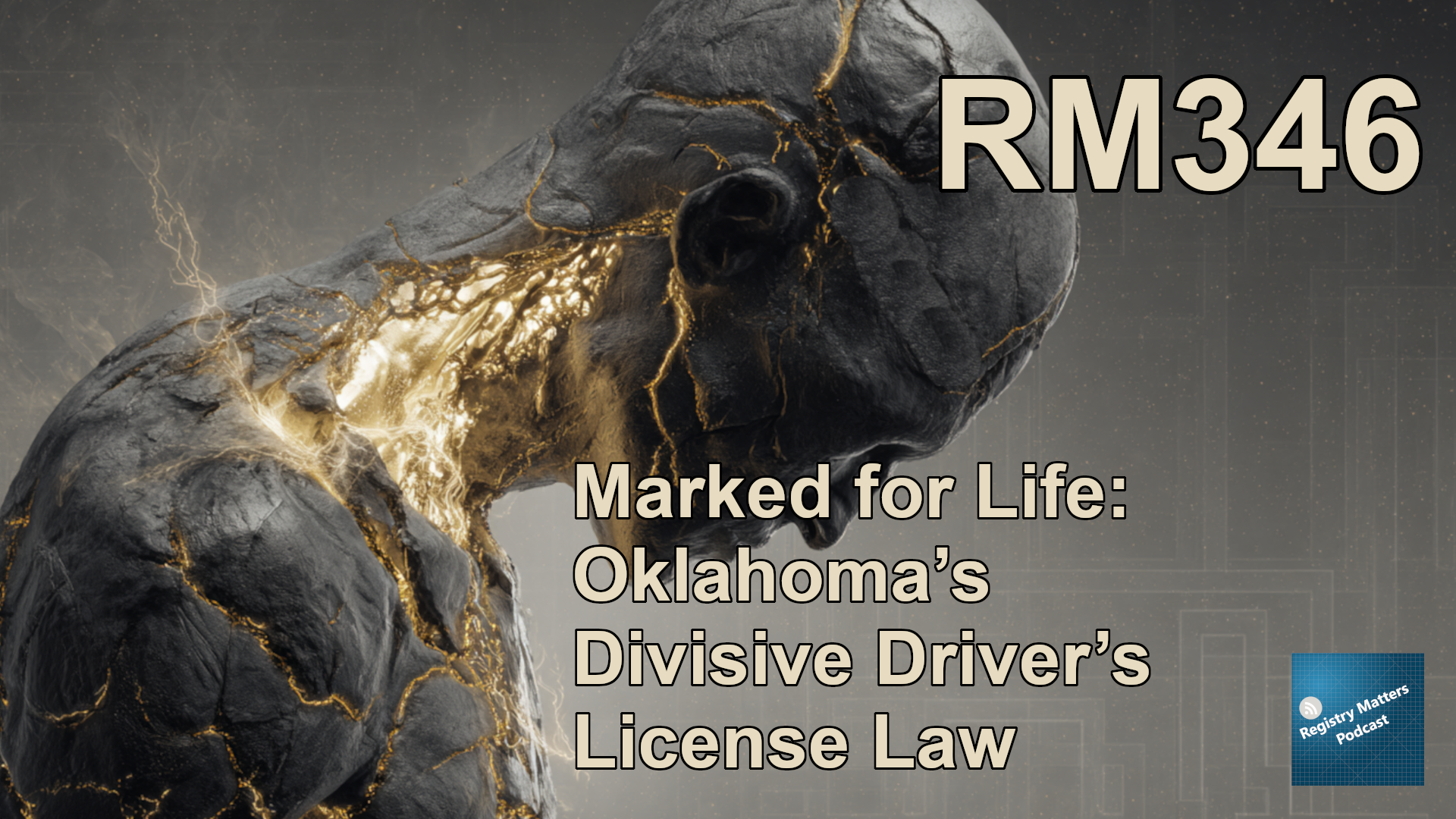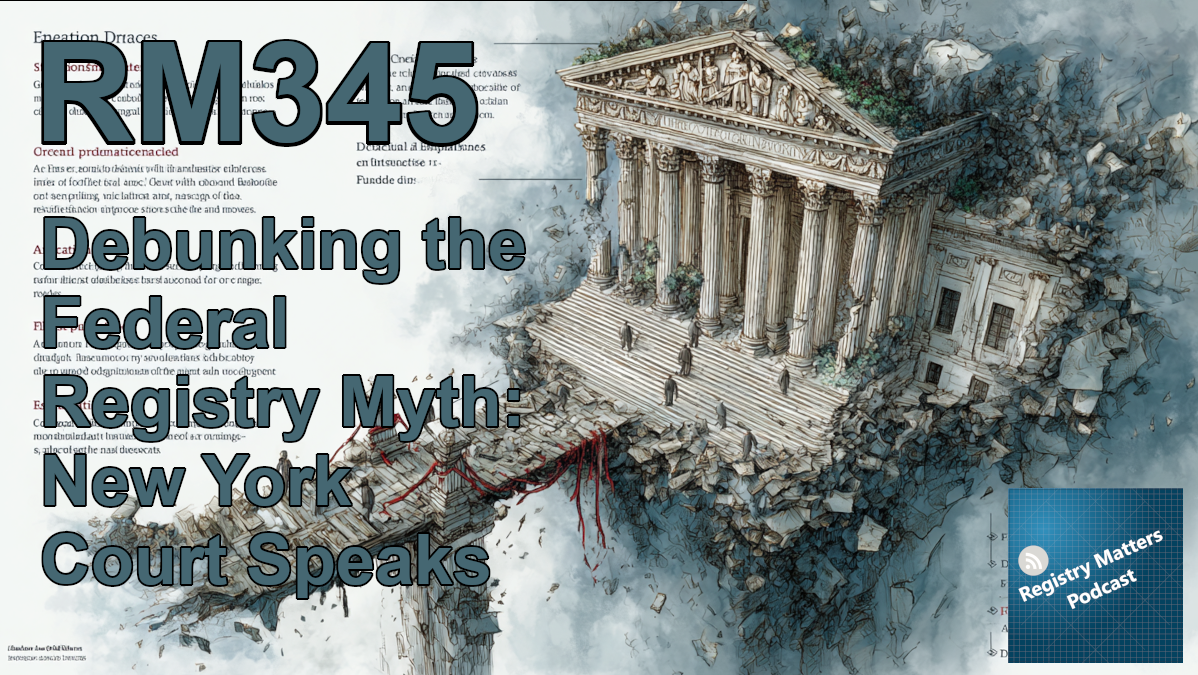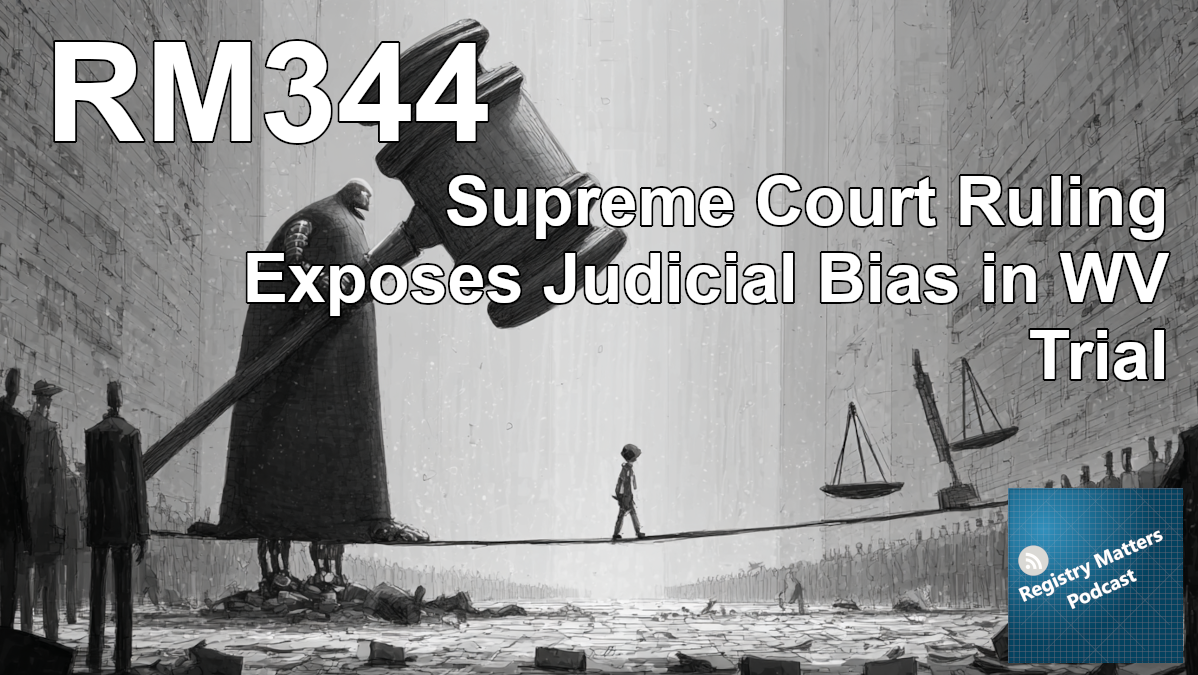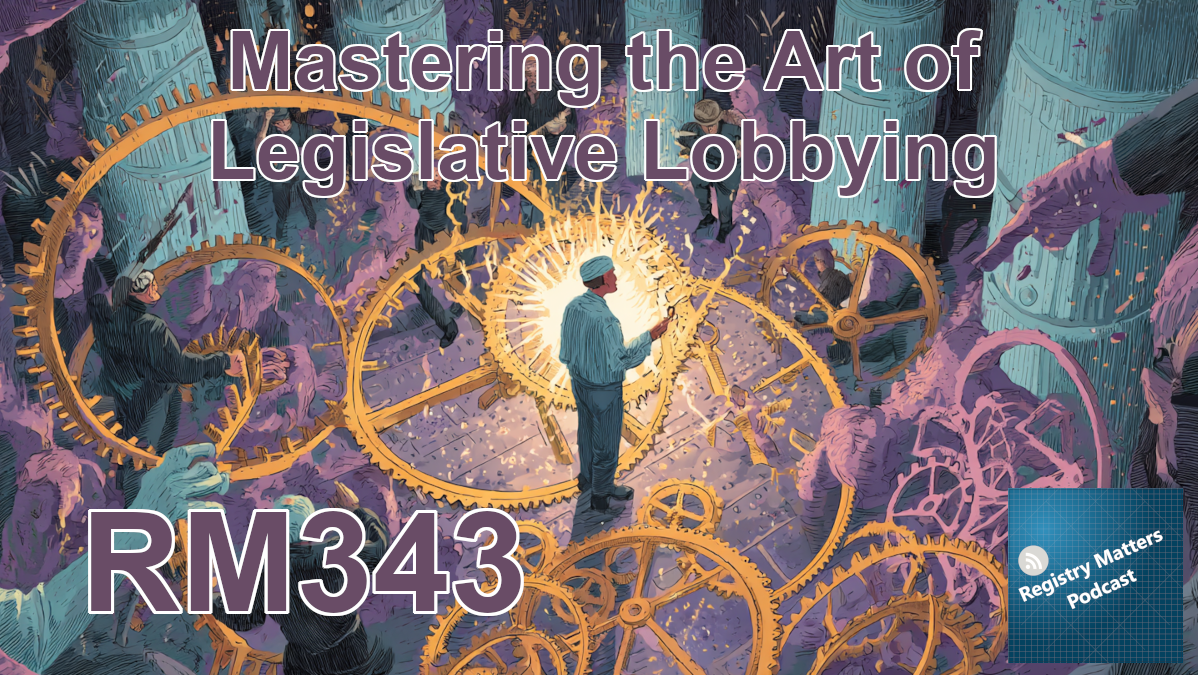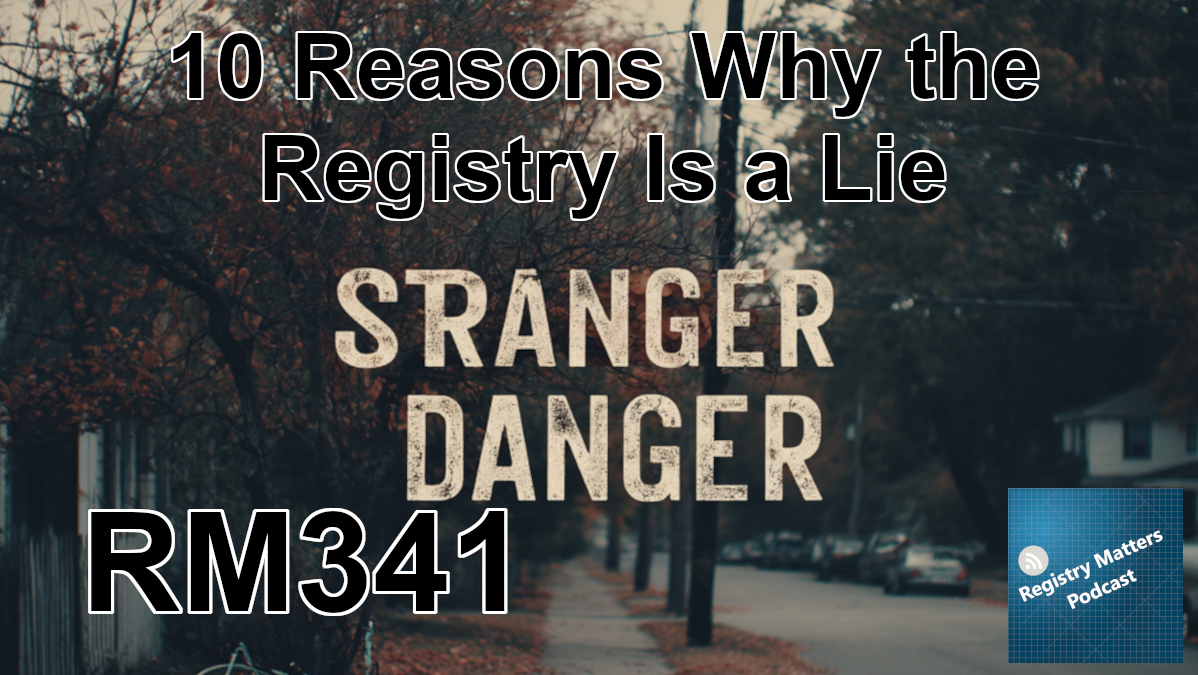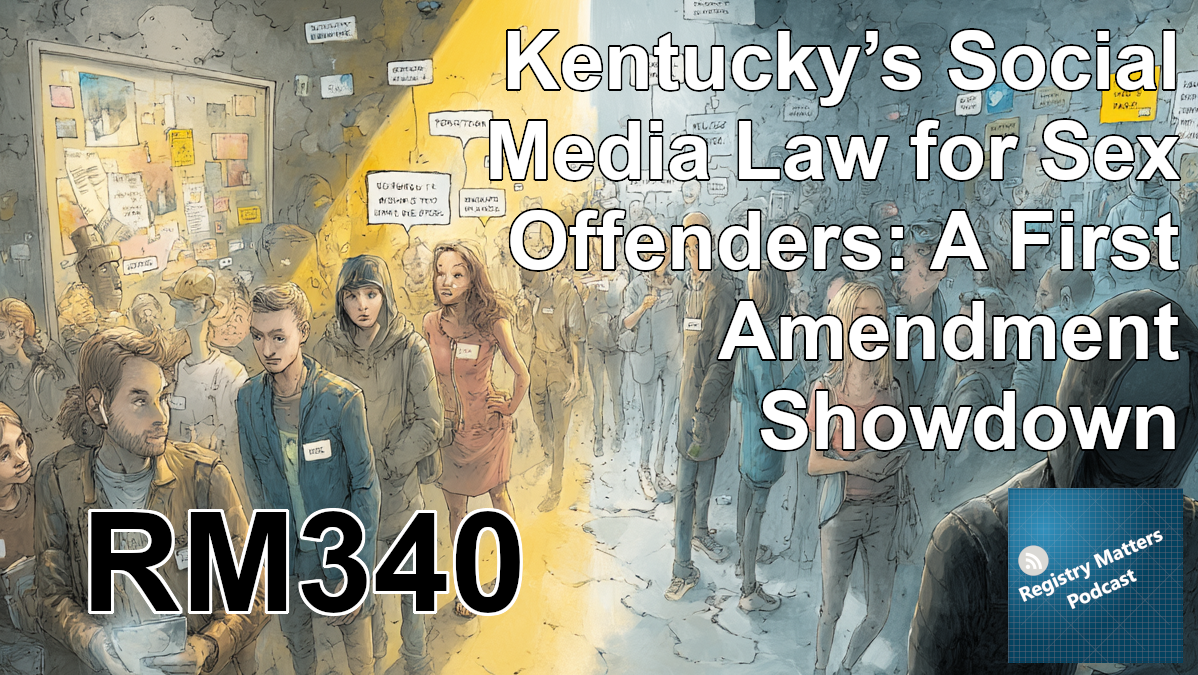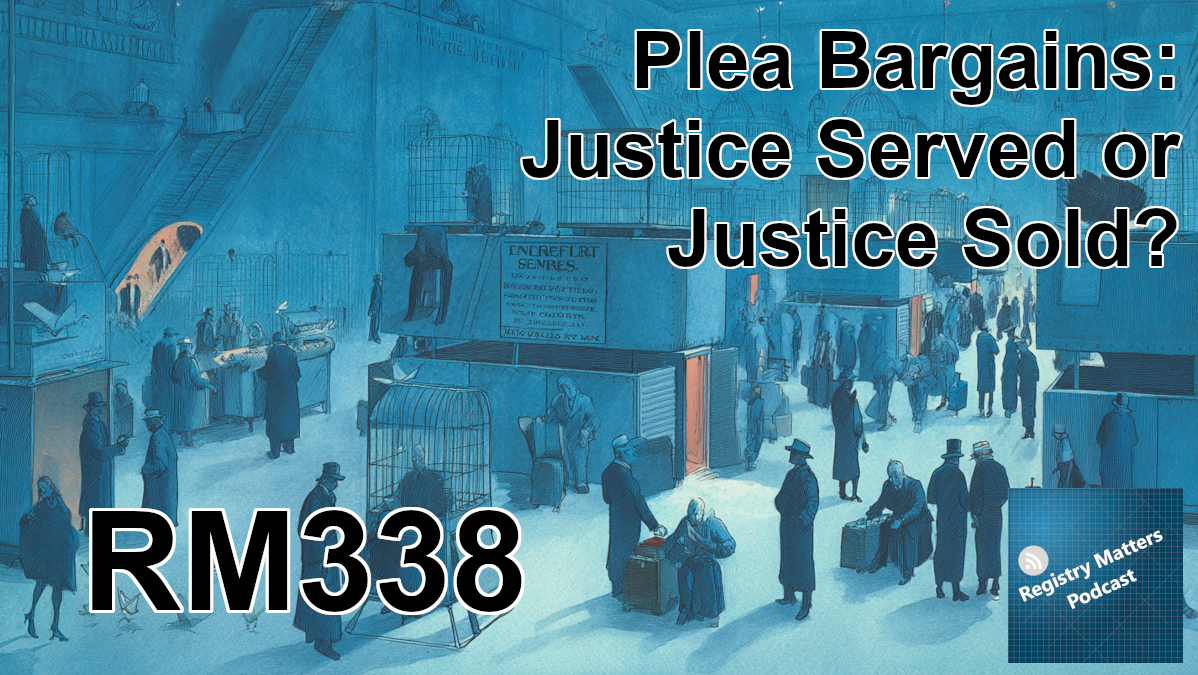Registry Matters
Trying to navigate the complicated world of sex offender laws and how they affect a person forced to register?
Each week Andy and Larry discuss life on the sex offender registry and how registry laws affect those on “the list.” Our goal is to help listeners navigate the complexity of the onerous “civil, regulatory schemes” that are clearly punitive in nature.
We discuss current legal challenges to sex offender registries and answer questions from PFRs and listeners. Special guests share their insight and experiences.
I would add a short “download on podcast for weekly broadcasts” but that seems redundant. And if you don’t want to use names, we works.
In Episode 346 of Registry Matters. This week, we’ll unpack a trio of stories that reveal just how tightly the rule of law, civil liberties, and the sex-offense registry intertwine. First, we’ll break down the Supreme Court’s landmark decision declaring... Read More
On this episode, we’re zooming out, tracing how nearly four decades of federalism, landmark statutes like the 1984 Sentencing Reform Act, and a public appetite for tougher penalties have pushed federal and state sentencing systems down increasingly different paths. Those... Read More
This episode of Registry Matters covers significant legal developments affecting the justice system and those impacted by it. The West Virginia Supreme Court overturned Chad Eldridge’s conviction due to judicial misconduct and lack of impartiality during his trial. In California,... Read More
Ohio’s House Bill 102 proposes expanding housing and movement restrictions for registered individuals near their victims, sparking concerns over implementation and fairness. MAIN POINTS: TAKEAWAYS:... Read More
Rhode Island allows out-of-state registry service to count toward its shorter, ten-year registry period. Registry listings become static and outdated once a person moves to another state. The theory that interstate registration clauses limit obligations only to those registered elsewhere... Read More
[0:00] Intro [1:41] A Kentucky law requiring certain convicted offenders to use their legal names on social media faces First Amendment challenges and legal debate over its constitutionality and narrow tailoring. [13:45] A California legislative debate emerged over whether to... Read More
Fear of authoritarian targeting PFRs; Determined ex-PFRs can succeed remotely; Eleventh Circuit finds Alabama law overbroad; state must allow individualized review for parents’ rights; DOJ ends PREA funding, increases prison sexual abuse risks. [0:00] Intro[03:08] Could The Administration Target PFRs?... Read More
In Episode 338 of Registry Matters, we unpack a string of legal twists and policy debates that underscore the complexities of our justice system: a South Carolina prosecution that collapsed for lack of proof under narrow statutory language; Maine’s bold... Read More
[03:15] Power Showers: The Debate Over Water Flow & Conservation[06:15] Art vs. Probation: Can Creativity Survive Supervision?[13:40] Navigating Confusing PFR Reporting Rules in Michigan[21:21] Challenging Missouri’s SORA: What Went Wrong?[44:48] Gorsuch and Alito: A Threat to Defendants’ Rights? https://www.registrymatters.co/podcast/rm337-missouri-jane-doe-v-michael-turner-et-al/Email us:... Read More
We’re covering a strong case from Michigan that’s a real win for PFR. For anyone on YouTube insisting there’s never any positive news, we hope you’re tuning in—this one’s for you. Next up, we’ll revisit a follow-up question about New... Read More

